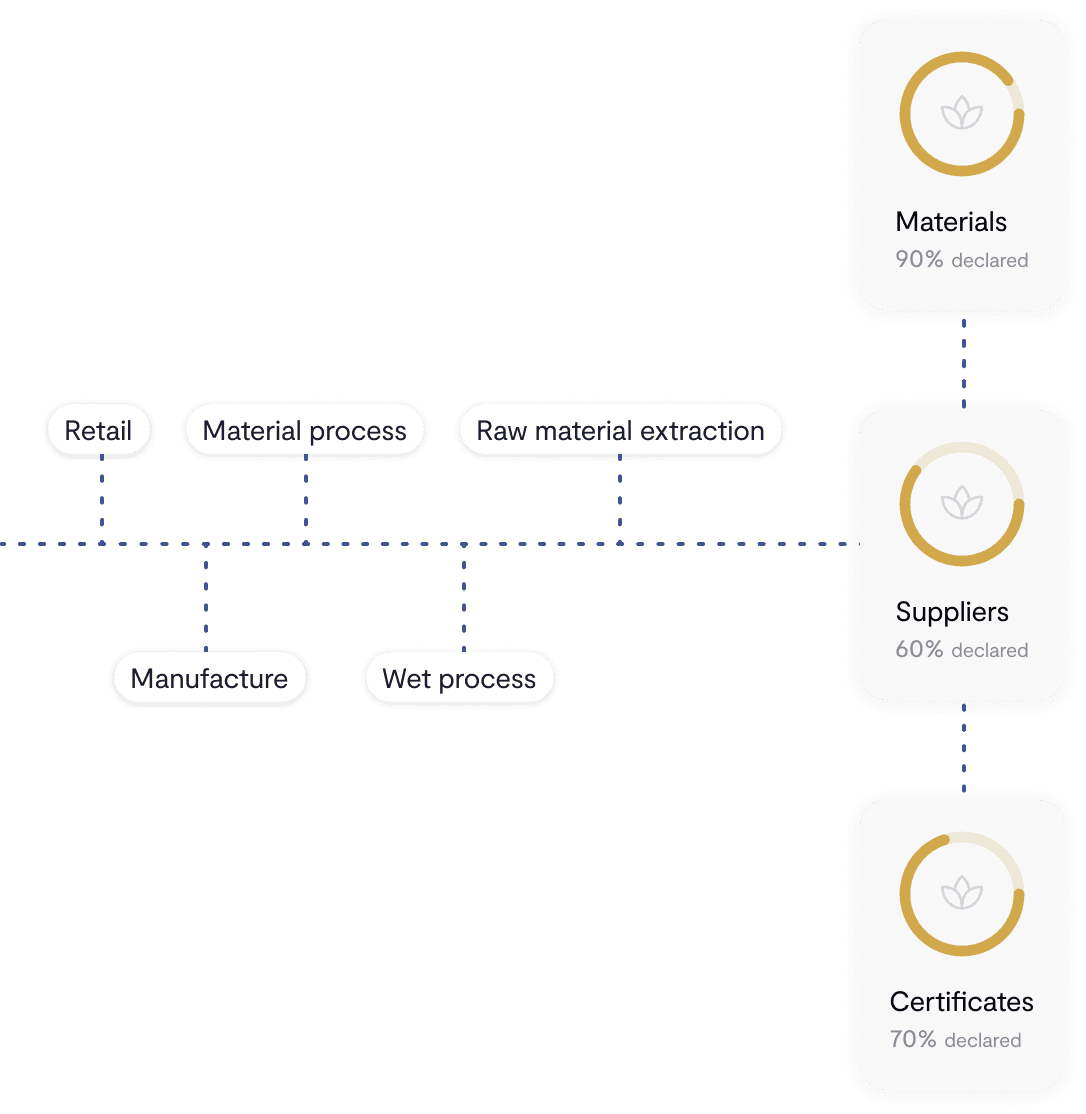The ultimate goal of BCome is to provide quality data that assists professionals in the fashion industry in making better decisions throughout their supply chain. Join us in this interview with Tatiana Dubois, Advisor at GIZ, to gain insights into why data sharing is the primary tool for achieving transparency in the fashion industry and how legislation can empower this significant change in the textile sector.
GIZ operates as a service provider in international cooperation for sustainable development and education. Tatiana Dubois, engaged in the Global Textiles Governance Project among GIZ’s multiple initiatives for the textile industry, focuses on addressing fashion’s evolving challenges. Specifically, the project aims to navigate the increasing demands for environmental and social impact data within the textile sector.
Brands receive legislation but struggle to apply it in their day-to-day operations, we need to empower translating legislation into specific actions
Given your experience in capacity building in the textile sector, what challenges do you identify as most pressing in fashion, particularly with regards to sustainability?
T. I would say it’s about traceability and transparency. There’s a lot to understand about the kind of data we need. We must ensure that social data doesn’t take a back seat. It’s a priority that the social aspect doesn’t lose relevance but rather stands equivalent to the environmental side. For this to have an impact, legislation needs to be coordinated. The actors in the supply chain are currently lost amid regulations and uncertain about the European-level requirements. We’ve heard of factories managing up to 60 platforms for different brands, this is impractical. In our project, interoperability among these platforms is a major discussion. Brands receive legislation but struggle to apply it in their day-to-day operations, we need to empower translating legislation into specific actions.
There is a big focus on addressing the environmental impact of the textile industry, but how could other systemic issues related to fashion, such as economic aspects, be managed?
T. From my perspective, we need better purchasing practices because sustainability is deeply interconnected. If you apply environmental pressure, it will inevitably affect the social aspects by 100%. Economically speaking, it’s about transparency again, understanding brands’ purchasing practices towards their suppliers. Having a traceability platform could be highly beneficial, enabling greater agility with suppliers and potentially reducing payment timelines. For instance, if farmers meet specific environmental requirements, they could receive a premium payment. All these improved purchasing practices will help, the supply chain stakeholders will realize that investing and changing their processes also benefit them. Until all actors in the supply chain see the value in sharing data, such a shift won’t happen. There’s a need for more transparency in purchasing practices and an effort to shift this mindset.
All these improved purchasing practices will help, the supply chain stakeholders will realize that investing and changing their processes also benefit them. Until all actors in the supply chain see the value in sharing data, such a shift won’t happen
Regarding the legislation that will affect the textile sector in the coming years, how important do you think the political framework is to promote the real transformation of the fashion industry?
T. Sustainability is a model that needs to grow. Initially, fashion companies might stick to the minimum, but legislation could drive change. The requirements proposed by the European Union are enough for now ultimately, this is a gradual process. The more pressure we exert, the less likely brands are to comply. However, I do believe that legislation will be crucial and will bring about certain changes in the fashion industry.
Beyond the pressures that brands, suppliers, etc., might feel due to legislation, what opportunities do you identify with all the new proposals coming from the European Union?
T. I believe that process efficiency is key. Many textile processes lack efficiency, and this will provide evidence that processes can be economically improved. Ultimately, once circular economy models are scaled up, they will also bring additional income to brands and retailers. There will be benefits, legislation won’t just serve to burden brands. For other supply chain actors, legislation does impose pressure, but ultimately, they’ll also see benefits. However, the aspect of incentives is crucial. Should a product with data and a product without data have the same price? Probably not. Incentives need to be diverse and not only focused on the economic aspect. Both the brand and the supplier will need to find benefits in these data-driven initiatives.
Should a product with data and a product without data have the same price? Probably not. Incentives need to be diverse and not only focused on the economic aspect
What would be the key piece to achieve a significant and lasting transformation in the fashion industry?
T. Traceability will trigger many improvements and bring more clarity, but there’s still much work to be done. There are many issues surrounding traceability that need addressing. Additionally, while there’s pressure on the textile industry, it also relies on other sectors like plastics and chemicals, which aren’t under the same level of traceability pressure. There’s a global need to collaborate across industries and learn from what’s already being successfully implemented in more advanced sectors. I feel like we want to reinvent everything, but it’s crucial to learn from what’s already working well.
This interview is a sneak peek from the Sustainability Handbook 2024: Evolving Fashion Resilience. Delve into the challenges we foresee for the fashion industry in the months ahead and secure effective solutions with BCome’s support. Let us know your needs, we’re eager to help you on your journey towards sustainability.

Tatiana Dubois is Advisor at GIZ









